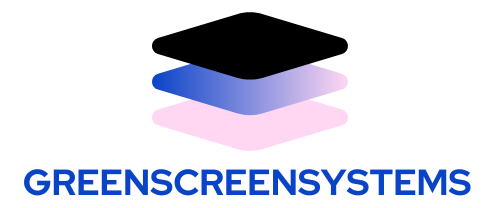Table of Contents
ToggleIn the fast-paced world of education technology, finding the right talent can feel like searching for a needle in a haystack—while blindfolded. With innovations popping up faster than students can say “edtech,” schools and companies alike are scrambling to recruit the best and brightest. But fear not! The secret sauce to successful edtech recruiting is not just about sifting through resumes; it’s about understanding the unique blend of skills that drive this dynamic industry.
Understanding Edtech Recruiting
Edtech recruiting involves identifying and hiring talent specifically for the education technology sector. This specialized recruiting process focuses on finding candidates with the right skills for various roles in a fast-evolving industry.
What Is Edtech Recruiting?
Edtech recruiting is the process of sourcing candidates for positions within the education technology landscape. It targets professionals skilled in software development, instructional design, and data analysis, among others. This area encompasses a wide range of roles from product managers to sales representatives, each requiring unique expertise. Successful technology-focused hiring enables organizations to align quickly with educational needs and innovations.
Importance of Edtech Recruiting
Edtech recruiting plays a crucial role in ensuring that organizations remain competitive. The demand for qualified professionals continues to grow as the industry evolves. By prioritizing the recruitment of skilled candidates, companies can drive innovation and enhance educational experiences. Effective recruiting strategies contribute to building robust teams that foster collaboration and creativity. Ultimately, ensuring the right talent is in place enhances overall organizational success in the edtech sector.
Key Skills in Edtech Roles

Understanding key skills is vital for successful edtech recruitment. Candidates must possess a blend of technical and soft skills to excel in this dynamic field.
Technical Skills
Technical skills play a crucial role in edtech. Prospective learners and learners often seek roles that require proficiency in software development, which includes programming languages like Python, Java, or JavaScript. Development frameworks, such as React or Angular, commonly figure in edtech job descriptions. Familiarity with user experience (UX) design ensures that products meet educational needs effectively. Data analysis abilities help organizations derive insights that improve educational outcomes. Knowledge of learning management systems (LMS) allows candidates to support educational institutions in implementing technology solutions efficiently.
Soft Skills
Soft skills also significantly contribute to success in edtech. Communication skills remain essential, as professionals often interact with educators, students, and stakeholders. Emotional intelligence aids in understanding diverse learner needs and tailoring solutions accordingly. Problem-solving skills help navigate challenges and develop innovative educational solutions. Collaboration fosters teamwork and emphasizes shared goals among diverse groups. Lastly, adaptability is necessary as technology continually evolves, requiring professionals to embrace change and learn new tools or methodologies quickly.
Strategies for Effective Edtech Recruiting
Effective edtech recruiting relies on targeted strategies that attract qualified candidates. Utilizing a mix of innovative approaches enhances the overall recruitment process.
Leveraging Social Media
Social media platforms serve as vital tools for reaching potential candidates. Recruiters can engage with talent pools on platforms like LinkedIn, Twitter, and Facebook, showcasing company culture and job opportunities. Posting frequently about industry trends and company achievements draws in individuals passionate about edtech. An emphasis on visual content, such as videos and infographics, highlights company initiatives and attracts interest. Engaging in discussions within relevant groups fosters community connections and generates visibility for open positions.
Building Partnerships with Educational Institutions
Collaborating with educational institutions supports the recruitment of top talent. Establishing relationships with universities allows recruiters to connect with students in relevant majors like instructional design and data analytics. Hosting workshops or internships creates real-world experiences, positioning organizations as desirable employers. Educational partnerships also enable participants to gain insights into market needs, ensuring a pipeline of skilled graduates ready for industry demands. Engaging with faculty members fosters a mutual exchange of knowledge and resources beneficial for both parties.
Common Challenges in Edtech Recruiting
Recruiting in the edtech sector comes with unique challenges. These difficulties stem from the rapid pace of change in technology and education needs.
Identifying Qualified Candidates
Finding qualified candidates proves challenging. Candidates must possess a blend of technical and soft skills essential for edtech roles. Software development expertise, along with experience in instructional design and data analysis, becomes crucial. Familiarity with programming languages, such as Python and Java, significantly enhances candidate profiles. Many essential roles require specific skill sets; product managers need strategic thinking, while sales representatives benefit from strong communication abilities. High demand for these specialized skills makes identifying suitable candidates a persistent hurdle.
Navigating the Competitive Landscape
The competitive landscape adds another layer of difficulty. Edtech companies face growing competition from startups and established tech firms, all vying for top talent. Companies often struggle to differentiate themselves and attract skilled individuals. To stand out, organizations must clearly convey their unique culture and mission. Engaging in targeted recruitment strategies, such as networking through educational partnerships, offers significant advantages. Effective use of social media platforms enables companies to promote their brand and showcases job opportunities. By adapting to these dynamics, organizations can enhance their recruitment efforts and attract the right candidates.
Edtech recruiting is a complex but vital process that shapes the future of education technology. By honing in on the right skills and employing targeted strategies, organizations can effectively attract and retain top talent. The emphasis on both technical and soft skills ensures that candidates are not only proficient but also adaptable to the industry’s rapid changes.
Leveraging social media and building partnerships with educational institutions can create a robust pipeline of skilled professionals. As the edtech landscape continues to evolve, prioritizing these recruitment strategies will help companies remain competitive and drive meaningful innovation in education.




